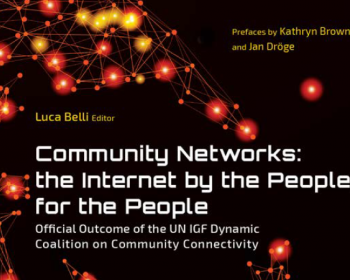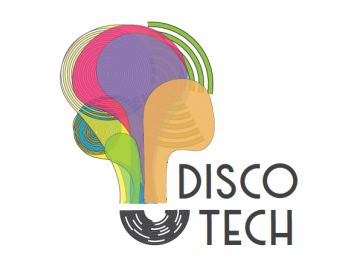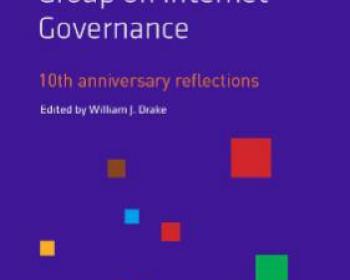Internet Society (ISOC)
The Internet Society is a global cause-driven organisation with offices around the world, governed by a diverse Board of Trustees that is dedicated to ensuring that the internet stays open, transparent and defined by users. While the Internet Society is not a membership-driven organisation, it has a growing number of members and chapters that have chosen to join the Internet Society to share its mission and to promote the open development, evolution and use of the internet for the benefit of all people throughout the world. In 2012, ISOC provided APC with travel funds to support the participation of African civil society in the World Conference on International Telecommunications (WCIT). In 2013 and 2016 ISOC supported the African School on Internet Governance (AfriSIG).
This book reflects many of the ideas discussed by the members of the Dynamic Coalition on Community Connectivity (DC3) of the United Nations Internet Governance Forum, between 2016 and 2017.
Disco-techs are informal peer-learning events designed to bridge the gap between technical and political solutions to attacks on internet rights and freedoms. The topics of this event change annually, but we always call it a “Disco-tech” because the format of the event is very unique: we are connecting policy to tech in a social atmosphere.
It is a week of celebration for APC, with two of our closest friends and internet pioneers joining the Internet Hall of Fame. Mike Jensen and Ermanno Pietrosemoli are two of the latest recipients of this honorary lifetime achievement award administered by the Internet Society (ISOC), which recognises individuals who have made significant contributions to the development and advancement of the i...
This project aims to address the following questions: Are local access infrastructure models a viable alternative to connecting the unconnected, and if so, what are the circumstances that make them successful? What are the benefits to the local community in terms of well-being, gender equity and social or economic development where connectivity infrastructure is locally owned?
This book, written by former WGIG members and others who played key roles in the debates on the WGIG and WSIS, reflects on the WGIG’s procedural and substantive contributions to the evolving global internet governance dialogue and institutional ecosystem.
This project aims to identify the most effective strategies for infrastructure sharing and the national policies that encourage or facilitate their adoption, and improve awareness of the importance of infrastructure sharing in helping to address demand for broadband.

Association for Progressive Communications (APC) 2022
Unless otherwise stated, content on the APC website is licensed under Creative Commons Attribution 4.0 International (CC BY 4.0)







